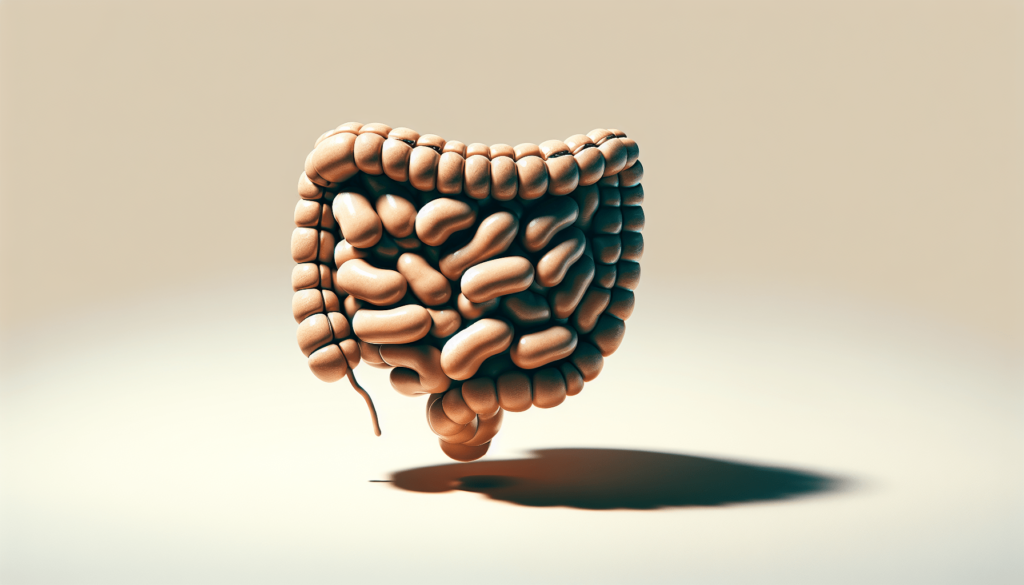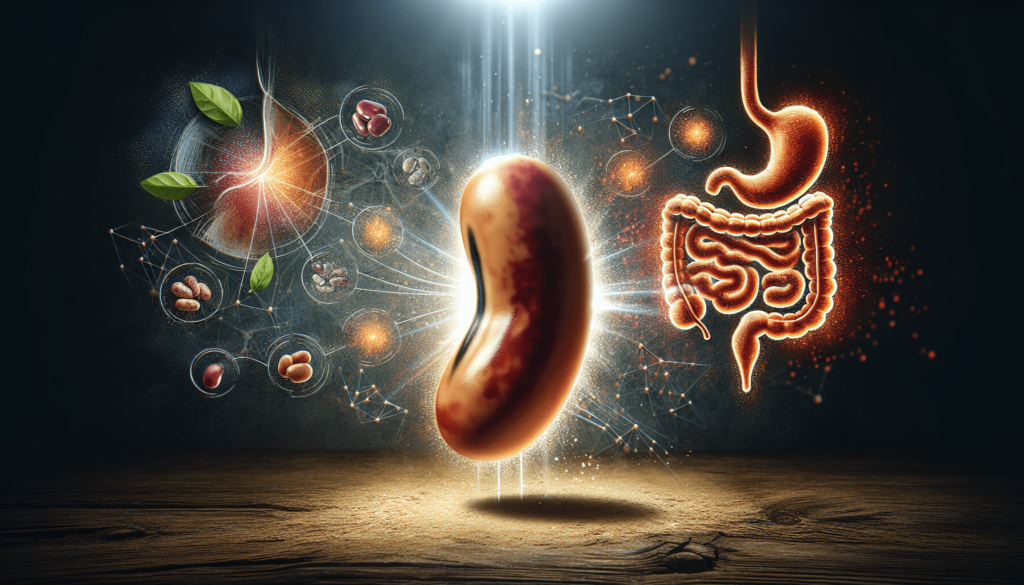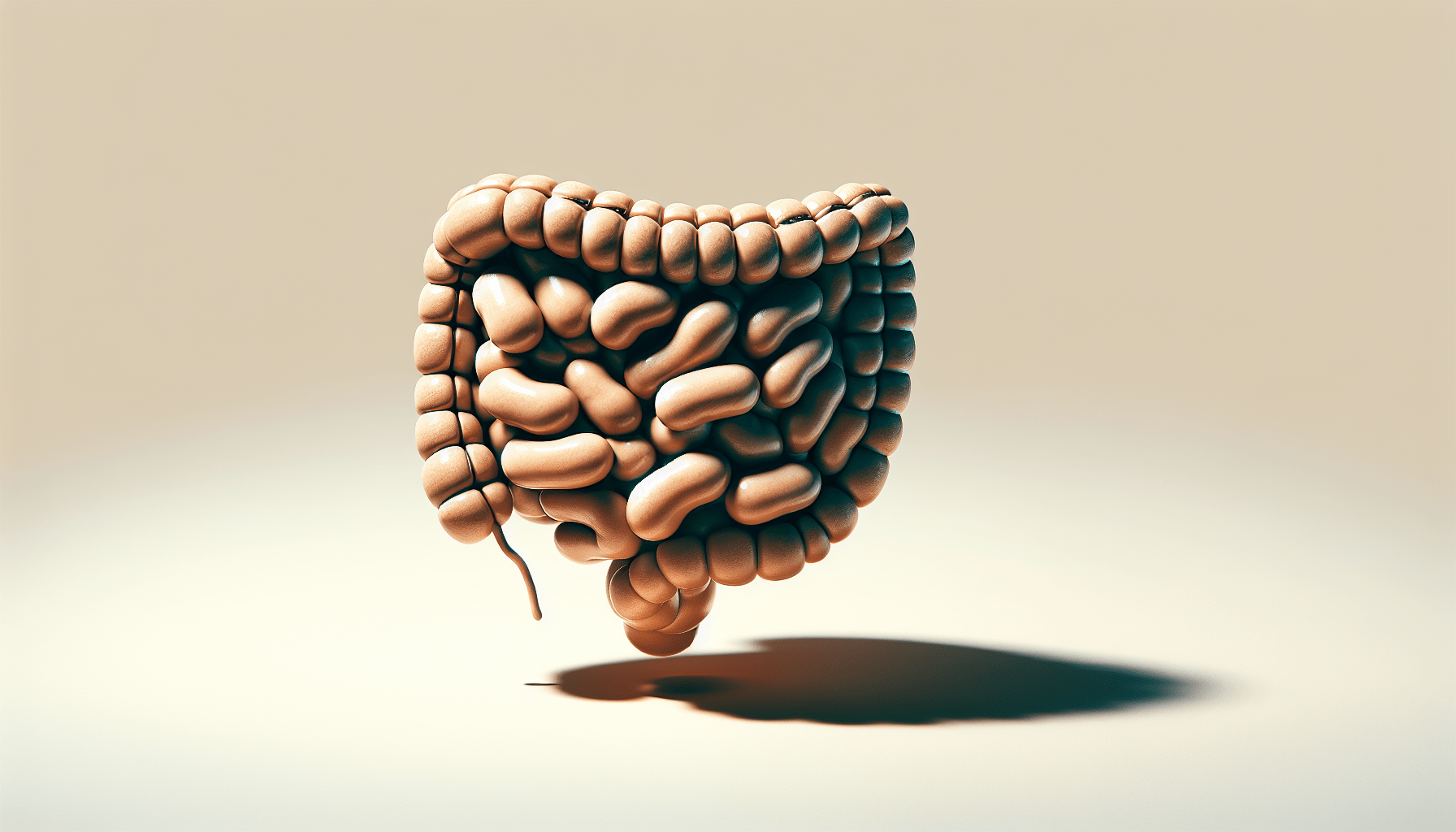If you love beans but often find yourself battling with digestive issues after enjoying a hearty meal, you may be wondering if there is a connection between the two. In this article, we will uncover and explore the potential digestive issues that can be associated with eating beans. From bloating to gas, we’ll delve into the various factors that can cause discomfort and discuss ways to minimize these problems, so you can continue to enjoy the nutritional benefits of beans without any unwanted side effects. So, let’s dive right in and get to the bottom of this bean-related mystery!
Potential Digestive Issues
Gas and Bloating
When consuming beans, it is not uncommon to experience gas and bloating. This is because beans contain complex carbohydrates called oligosaccharides that can be difficult for the body to digest. These oligosaccharides pass through the small intestine undigested and are then fermented by the bacteria in the large intestine, resulting in the production of gas.
Flatulence
Flatulence, commonly known as passing gas, is another potential digestive issue that can occur when eating beans. The fermentation process that occurs in the large intestine can lead to the production of gas, which is then released through flatulence. While this is a natural bodily function, it can be embarrassing or uncomfortable for some individuals.
Abdominal Discomfort
Abdominal discomfort is a broad term that encompasses various sensations in the abdominal area, such as pain, cramping, or a sense of fullness. This discomfort can be a result of the increased production of gas when consuming beans, leading to distention and pressure in the abdomen.
Diarrhea
Diarrhea is characterized by loose or watery stools and can be a potential digestive issue associated with eating beans. Some individuals may experience diarrhea as a result of their body’s inability to properly digest the oligosaccharides found in beans. This can lead to an increase in bowel movements and the passing of loose stools.
Constipation
On the other end of the spectrum, some individuals may experience constipation when consuming beans. This can be due to the high fiber content in beans, which can have a bulking effect on the stools. If not enough water is consumed, the stools may become dry and hard, resulting in difficulty passing stools.
Causes of Digestive Issues
Oligosaccharides
Oligosaccharides, such as raffinose and stachyose, are sugars that are found in beans. These complex carbohydrates cannot be broken down by the human digestive system, as our bodies lack the necessary enzymes. Instead, they pass through the small intestine undigested and make their way to the large intestine, where they are fermented by bacteria.
Raffinose
Raffinose is a type of oligosaccharide that is commonly found in beans. It consists of three sugar molecules and is particularly difficult for the body to digest. The fermentation of raffinose in the large intestine can lead to the production of gas, causing bloating and flatulence.
Stachyose
Stachyose is another oligosaccharide found in beans. Like raffinose, it consists of three sugar molecules and is not easily digested by the human body. The fermentation of stachyose by bacteria in the large intestine can contribute to gas production and digestive discomfort.

Reducing Digestive Issues
Soaking and Sprouting
One way to reduce the potential digestive issues associated with eating beans is by soaking and sprouting them before consumption. Soaking beans helps to remove some of the indigestible oligosaccharides, making them easier on the digestive system. Sprouting beans can further reduce their oligosaccharide content and increase their nutritional value.
Cooking Methods
Cooking beans thoroughly can also help to minimize digestive issues. Boiling beans in water for an extended period breaks down the complex carbohydrates, making them more digestible. It is important to cook beans until they are soft and easily mashed between your fingers to ensure they are fully cooked and easier on the stomach.
Increasing Intake Gradually
If you are new to eating beans or have experienced digestive issues in the past, it is advisable to increase your intake gradually. Start by consuming small amounts of beans and gradually increase the portion sizes over time. This allows your body to adjust to the increased fiber and oligosaccharide content, minimizing the risk of digestive discomfort.
Using Digestive Enzymes
Another option to reduce digestive issues is to supplement your diet with digestive enzymes. These enzymes can help break down the complex carbohydrates found in beans, aiding in their digestion. Be sure to consult with a healthcare professional before starting any new supplements to ensure they are appropriate for your specific needs.
Individual Variations
Microbiome Composition
The composition of an individual’s gut microbiome can play a role in how they digest and tolerate beans. The microbiome refers to the collection of bacteria and other microorganisms that live in the digestive tract. Different individuals may have varying populations of bacteria that specialize in breaking down the complex carbohydrates found in beans, which can impact their digestion.
Enzyme Production
Enzymes are proteins that help facilitate biochemical reactions in the body, including the digestion of carbohydrates. Some individuals may naturally produce higher levels of the enzymes needed to break down the oligosaccharides found in beans, allowing them to digest beans more easily without experiencing digestive issues. Others may have lower levels of these enzymes, increasing the likelihood of experiencing discomfort.

Health Benefits of Beans
High Fiber Content
Beans are an excellent source of dietary fiber, which offers numerous health benefits. Fiber helps to regulate bowel movements, promoting regularity and preventing constipation. It can also help to lower cholesterol levels, control blood sugar levels, and support weight management by promoting feelings of fullness.
Protein Source
Beans are a great plant-based source of protein, making them particularly beneficial for individuals following vegetarian or vegan diets. Protein is essential for the growth and repair of tissues, the production of enzymes and hormones, and the development of a strong immune system. Incorporating beans into your diet can help ensure an adequate intake of this vital nutrient.
Mineral and Vitamin Content
Beans are also rich in various minerals and vitamins, including iron, magnesium, potassium, and folate. Iron is essential for oxygen transport in the body, while magnesium and potassium are involved in numerous physiological processes. Folate is particularly important for pregnant women, as it plays a crucial role in fetal development.
Beans and Gut Health
Prebiotic Effects
Beans contain dietary fibers that act as prebiotics, promoting the growth and activity of beneficial bacteria in the gut. These fibers are not digested by our own enzymes but serve as a food source for the bacteria in our gut. By nourishing these beneficial bacteria, beans can help support a healthy gut microbiome and contribute to overall gut health.
Promoting Beneficial Bacteria
The consumption of beans has been shown to increase the populations of beneficial bacteria in the gut, such as Bifidobacteria and Lactobacilli. These bacteria help maintain a balanced gut microbiome and play a crucial role in digestion and nutrient absorption. By promoting the growth of these beneficial bacteria, beans can contribute to improved gut health.
Digestive Issues and Specific Bean Types
Lima Beans
Lima beans, also known as butter beans, are a type of legume that can potentially cause digestive issues. They contain a moderate amount of oligosaccharides, which can lead to gas and bloating in some individuals. If you are prone to digestive issues, it may be best to consume lima beans in moderation or try soaking and cooking them thoroughly to reduce their oligosaccharide content.
Kidney Beans
Kidney beans are a popular variety of bean that can cause digestive issues due to their oligosaccharide content. It is important to soak and cook kidney beans thoroughly to help reduce their oligosaccharide content and make them easier to digest. Additionally, consuming kidney beans in moderate portions and gradually increasing your intake can also help minimize digestive discomfort.
Chickpeas
Chickpeas, also known as garbanzo beans, are another type of bean that can potentially cause digestive issues. They contain a significant amount of oligosaccharides, which can lead to gas and bloating. Soaking and cooking chickpeas thoroughly, as well as gradually increasing your intake, can help reduce the likelihood of experiencing digestive discomfort.
Black Beans
Black beans are a nutritious and versatile bean that can also cause digestive issues in some individuals. Like other beans, they contain oligosaccharides that can contribute to gas and bloating. Incorporating soaking, sprouting, and thorough cooking methods, along with gradually increasing your intake, can help minimize the risk of digestive discomfort when consuming black beans.
Allergies and Sensitivities
Bean Allergies
While rare, some individuals may have allergies to beans. Symptoms of a bean allergy can range from mild to severe and may include hives, itching, swelling, difficulty breathing, or gastrointestinal distress. If you suspect an allergy to beans, it is important to consult with a healthcare professional for appropriate testing and guidance.
Lectin Sensitivity
Beans are also high in lectins, which are proteins that can potentially cause digestive issues in some individuals. Lectins are resistant to digestion and can bind to the lining of the gut, leading to irritation and inflammation. Individuals with lectin sensitivity may experience symptoms such as abdominal pain, bloating, or diarrhea when consuming beans.
Bean Preparation and Cooking Methods
Soaking and Cooking
Soaking beans before cooking is a traditional method that helps to reduce their oligosaccharide content and make them easier to digest. To properly soak beans, rinse them thoroughly, then place them in a bowl with enough water to cover them completely. Allow the beans to soak for at least 8-12 hours, then drain and rinse them again before cooking. When cooking soaked beans, be sure to cook them in fresh water until they are soft and easily mashed between your fingers.
Canned Beans
Canned beans are a convenient option for those who prefer not to soak and cook dried beans. However, it is important to note that canned beans may still contain oligosaccharides and may not be as easily digested as soaked and cooked beans. To minimize digestive issues when consuming canned beans, rinse them thoroughly before use to remove excess sodium and oligosaccharides.
Fermented Beans
Fermenting beans is another method that can enhance their digestibility and improve gut health. Fermentation breaks down complex carbohydrates and reduces the levels of oligosaccharides in beans, making them easier to digest. Fermented beans, such as tempeh and miso, can be a good alternative for individuals who have difficulty digesting non-fermented beans.
Conclusion
While there are potential digestive issues associated with eating beans, such as gas, bloating, and diarrhea, there are also many health benefits to be gained from their consumption. By employing methods such as soaking, cooking thoroughly, and gradually increasing your intake, you can reduce the risk of digestive discomfort and enjoy the nutritional benefits that beans have to offer. It is important to listen to your body, as individual variations in microbiome composition and enzyme production can influence how you tolerate beans. If you experience persistent or severe digestive issues, consult with a healthcare professional for personalized guidance and support. Remember, beans can be an excellent addition to a balanced and healthy diet, providing high fiber content, protein, and valuable minerals and vitamins.

